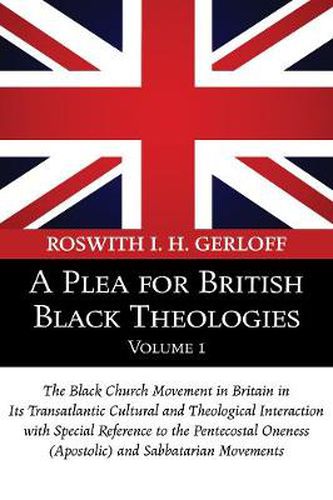Readings Newsletter
Become a Readings Member to make your shopping experience even easier.
Sign in or sign up for free!
You’re not far away from qualifying for FREE standard shipping within Australia
You’ve qualified for FREE standard shipping within Australia
The cart is loading…






This title is printed to order. This book may have been self-published. If so, we cannot guarantee the quality of the content. In the main most books will have gone through the editing process however some may not. We therefore suggest that you be aware of this before ordering this book. If in doubt check either the author or publisher’s details as we are unable to accept any returns unless they are faulty. Please contact us if you have any questions.
Since the Second World War more than 1,000 black independent congregations in around 300 different organizations have sprung up all over Britain. The immigration of Afro-Caribbeans and West Africans has led to the emergence and growth of many churches, which flourish in the cities and attract a growing number of members. They now play an increasingly active role in the social and ecumenical life of the nation, which is reflected in cooperation with the ‘New Instrument’ of the British churches. They comprise a rich diversity of theological traditions and cultural inheritance, some in an interesting blend, some in a struggle with white elements. Existence and growth of these communities have often been explained by factors inherent in British society, such as social deprivation and English racism. The book attempts to prove that, as much these factors are a reality, they do not account for the dynamics of the movement, its proliferation and stability. Rather these congregations are carried by strong cultural and theological forces, which molded the spiritual experience of the African diaspora. They carry a living faith, sound contextual theologies, and a form of organization, which presents a model for other ethnic minorities.
$9.00 standard shipping within Australia
FREE standard shipping within Australia for orders over $100.00
Express & International shipping calculated at checkout
This title is printed to order. This book may have been self-published. If so, we cannot guarantee the quality of the content. In the main most books will have gone through the editing process however some may not. We therefore suggest that you be aware of this before ordering this book. If in doubt check either the author or publisher’s details as we are unable to accept any returns unless they are faulty. Please contact us if you have any questions.
Since the Second World War more than 1,000 black independent congregations in around 300 different organizations have sprung up all over Britain. The immigration of Afro-Caribbeans and West Africans has led to the emergence and growth of many churches, which flourish in the cities and attract a growing number of members. They now play an increasingly active role in the social and ecumenical life of the nation, which is reflected in cooperation with the ‘New Instrument’ of the British churches. They comprise a rich diversity of theological traditions and cultural inheritance, some in an interesting blend, some in a struggle with white elements. Existence and growth of these communities have often been explained by factors inherent in British society, such as social deprivation and English racism. The book attempts to prove that, as much these factors are a reality, they do not account for the dynamics of the movement, its proliferation and stability. Rather these congregations are carried by strong cultural and theological forces, which molded the spiritual experience of the African diaspora. They carry a living faith, sound contextual theologies, and a form of organization, which presents a model for other ethnic minorities.